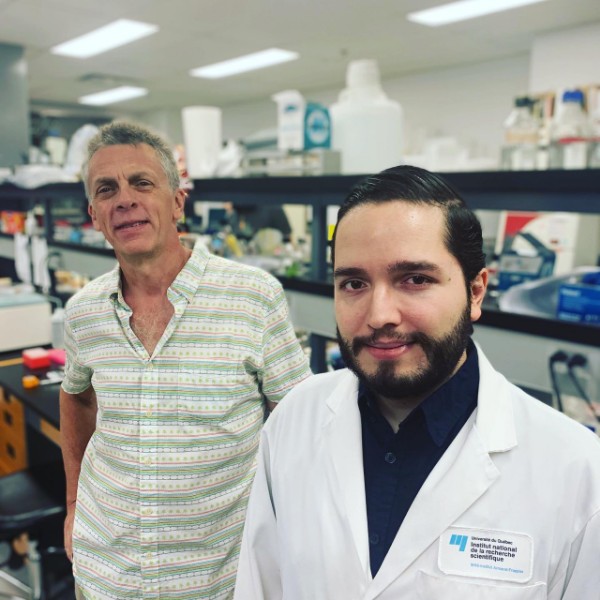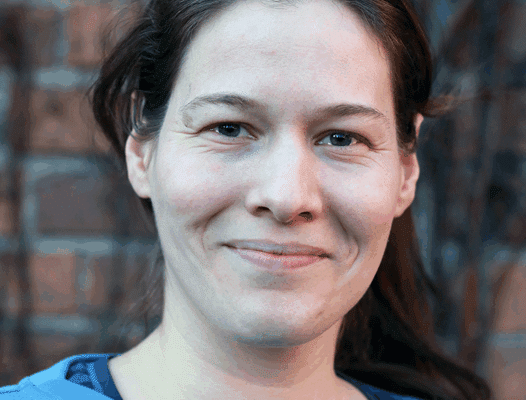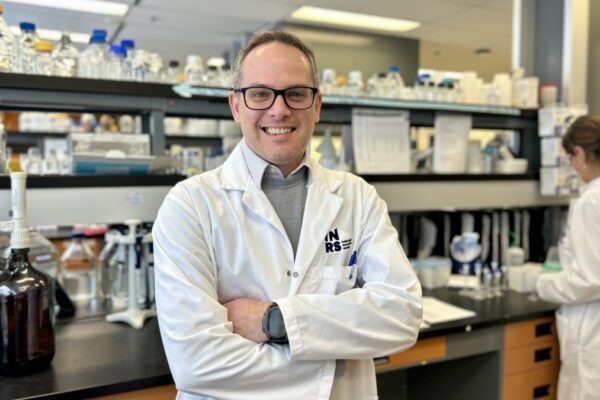- Awards and Distinctions
-
YOU ARE
- Community member
- Future Student
- Student
- Professor
- Alumni
- Media
- Guidance counsellors
- INRS retiree
- Contact Us
- Newsroom
- Careers
- FR
-
Studies
We teach the next generation of researchers to develop scientific, social, and technological innovations.
-
Research
We find solutions through interdisciplinary research and industry or public and community partnerships.
-
INRS
We play an active role in Québec's economic, social, and cultural development.
Guillermo Arango Duque has always been intrigued by the cells’ ability to fight infection. His curiosity about the mechanisms by wich microbes survive in infected cells led him to join the laboratory of Professor Albert Descoteaux at the Institut National de la Recherche Scientifique (INRS) in 2009.
Driven by a desire to help others, Guillermo is interested in neglected tropical diseases that affect more and more people in poor countries, especially with climate change. His main target: leishmaniasis, a chronic disease caused by the Leishmania parasite that affects more than 12 million people worldwide.
The promising young scientist, Guillermo Arango Duque, was awarded the Relève étoile Jacques-Genest March 2020 by the Fonds de recherche du Québec — Santé for an article published in the prestigious journal PLOS Pathogens, in which he is the first author.
“I am moved and very proud of this recognition not only for my research work, but also for my commitment to the study of neglected tropical infectious diseases, “ says the postdoctoral fellow in cell biology at INRS.

“When I first read the term “leishmaniac” in a parasitology book, I found it really amusing, because the term indicates someone who is studies leishmaniasis. So I am proud to be a leishmaniac!”
His article focuses on the virulence strategy used by the Leishmania parasite which to exploit an intracellular transport mechanism already present in macrophages, a type of white blood cell of the immune system, to spread its virulence factors. “This is an important discovery in the field that sheds light on how the parasite survives in a cell. Knowing which cellular molecules are hijacked by Leishmania opens the door to new treatments. We could target specific pathways in the infected cell to prevent the parasite’s intracellular survival without perturbing host cell physiology.”
The award, which comes with a $1,000 grant, encourages Guillermo to pursue his research career and may enable him to obtain more funding for his future work. “It’s an indicator of success for the funding.”
His research on the biology of infected macrophages in the context of infection will allow him to apply this knowledge to the study of how macrophages, and other cells of the immune system, contribute to the development of cardiometabolic diseases. It is on this research that he will carry out his next postdoctoral fellowship at the Massachusetts General Hospital — Harvard Medical School in the United States. More motivated than ever, Guillermo Arango Duque has a great research career on the horizon.
Guillermo Arango Duque is also a recipient of awards from the Canadian Institutes of Health Research (CIHR), and the Armand-Frappier Foundation. He is also laureate of the Young Scientist Award of the Institut Pasteur International Network.
You may also like

March 27, 2020
Márta RadóShare


